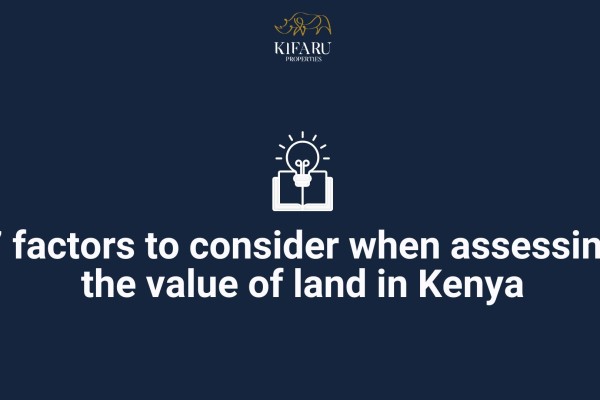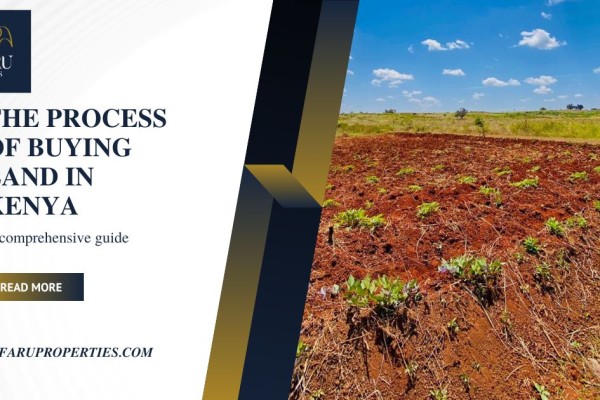- Sep 11, 2024
- Kifaru Meadows
- 389

1. Conduct Research on Location
The first and most crucial step is choosing the right location. Whether you’re buying land in an urban, suburban, or rural area, the location significantly affects the price, future value, and usability of the land. Ask yourself key questions such as:
Is the land accessible?
Are there essential amenities nearby (schools, hospitals, shopping centers)?
Is the area prone to natural disasters like flooding?
What is the potential for future development?
For example, areas like Ruiru, near Nairobi, have seen rapid growth and increased demand due to proximity to essential amenities and infrastructure projects like Tatu City.
2. Verify the Land Ownership
Before any transactions, confirm the ownership of the land. Ensure that the seller has the legal right to sell the property. Many potential buyers have lost money in fraudulent schemes where land is sold by individuals who are not the rightful owners. Start by obtaining a copy of the title deed and conducting a search at the Ministry of Lands.
A search at the Land Registry verifies the true owner, the size of the land, and whether the land has any encumbrances such as unpaid loans, caveats, or disputes. This process protects you from buying land that has legal issues or that’s involved in an ownership dispute.
3. Check for Land Zoning Regulations
Different areas in Kenya are subject to specific land-use and zoning regulations. Some land is designated for agricultural use, while other plots may be reserved for residential, commercial, or industrial purposes. Ensure that the land you’re buying aligns with your intended use. It’s also essential to check with local authorities like the county government to confirm zoning laws and avoid future complications.
4. Survey the Land
Hiring a licensed land surveyor is critical. They will physically inspect the land and confirm its boundaries, ensuring that the plot you're buying is the exact one stated in the title deed. Boundary disputes can be costly and stressful, so it's better to clarify these details upfront. The surveyor will also ensure that the size of the land matches what is in the records.
5. Negotiate the Price and Payment Plan
Once you’ve done due diligence and are satisfied with the land, negotiate the price. Always compare with similar plots in the area to ensure you're getting a fair deal. Payment plans are also common in Kenya, especially for buyers who may not have the full amount upfront. Some land sellers allow buyers to pay in installments over a specific period. Be sure to have a clear, written agreement on the payment terms to avoid misunderstandings.
6. Draft and Sign a Sale Agreement
After agreeing on the price and payment terms, the next step is drafting a sale agreement. The sale agreement is a legally binding contract that outlines the terms of the transaction, including the sale price, payment schedule, and responsibilities of both parties. It’s advisable to involve a lawyer to ensure the agreement protects your interests and complies with Kenyan law.
7. Transfer of Ownership
Once payment is completed, the process of transferring ownership begins. The seller must apply for land consent from the local Land Control Board (LCB), a requirement in rural and agricultural areas. After obtaining consent, the title deed is transferred to your name at the Lands Office. At this point, you will be required to pay stamp duty, which is a tax calculated as a percentage of the land's value.
8. Final Registration and Title Deed Issuance
Once the title deed is transferred to your name, you officially become the legal owner of the land. The process concludes with the issuance of the new title deed under your name, ensuring you have full legal ownership rights.
Conclusion
Buying land in Kenya involves several legal and procedural steps, but with careful planning and due diligence, it can be a straightforward process. Always verify land ownership, conduct thorough searches, hire a lawyer, and ensure the land is suitable for your intended purpose. With the right approach, you can secure a valuable asset for your future.




